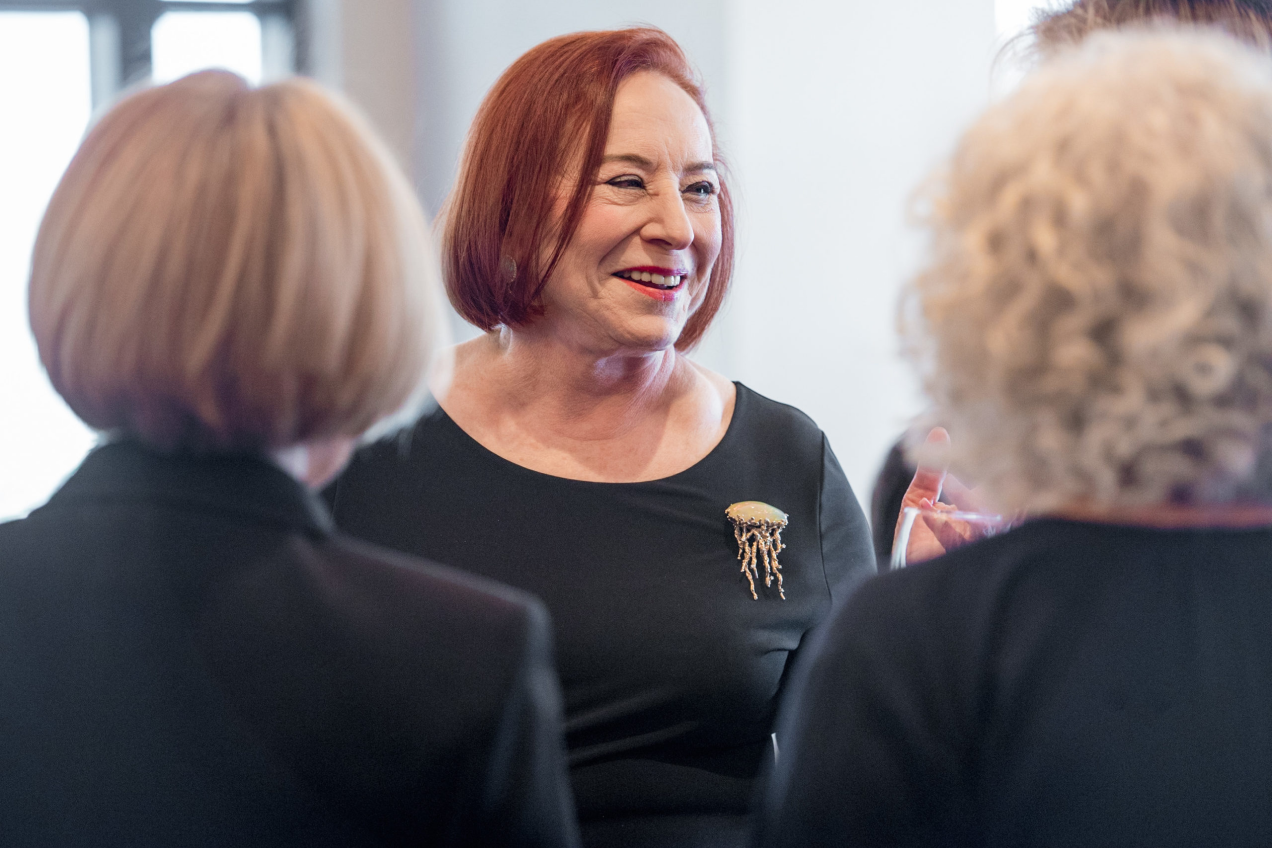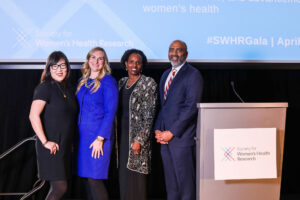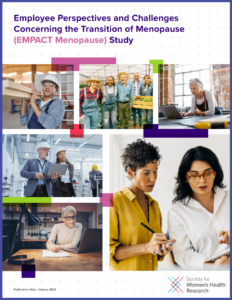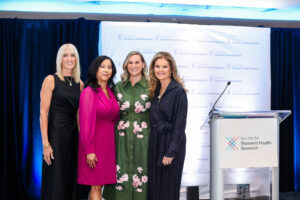Women were intentionally excluded from participating in most medical research, setting a dangerous precedent that overlooked fundamental biological differences between women and men.
In 1990, the Society for Women’s Health Research (SWHR) was founded by Dr. Florence Haseltine to confront this injustice and change the culture of medical research. Thanks to SWHR and other advocacy groups, women are now routinely included in medical research and make up a larger portion of the scientific workforce, and scientists are studying how biological sex differences affect the prevention, diagnosis, and treatment of disease.
Since its founding, SWHR has fought to bring attention to research gaps and unmet needs in women’s health and to advance its mission to eliminate imbalances in care for women through science, policy, and education.
SWHR is making women’s health mainstream.


 The Society for Women’s Health Research created the
The Society for Women’s Health Research created the  Following its first fully, in-person
Following its first fully, in-person  SWHR co-hosted “The Power of Research: Bridging the Gap” luncheon with the Women’s Alzheimer’s Movement (WAM), Cleveland Clinic, and Maria Shriver to host to bring awareness to women’s risk of developing and dying from Alzheimer’s disease and discuss the state of Alzheimer’s research. During the event, Shriver called for a “moonshot” for women’s health, magnifying SWHR’s calls to strengthen our nation’s investment in women’s health research. Shriver’s advocacy would later help inspire the White House Initiative on Women’s Health Research.
SWHR co-hosted “The Power of Research: Bridging the Gap” luncheon with the Women’s Alzheimer’s Movement (WAM), Cleveland Clinic, and Maria Shriver to host to bring awareness to women’s risk of developing and dying from Alzheimer’s disease and discuss the state of Alzheimer’s research. During the event, Shriver called for a “moonshot” for women’s health, magnifying SWHR’s calls to strengthen our nation’s investment in women’s health research. Shriver’s advocacy would later help inspire the White House Initiative on Women’s Health Research.

 The Society released its first-ever Spanish resource,
The Society released its first-ever Spanish resource, 